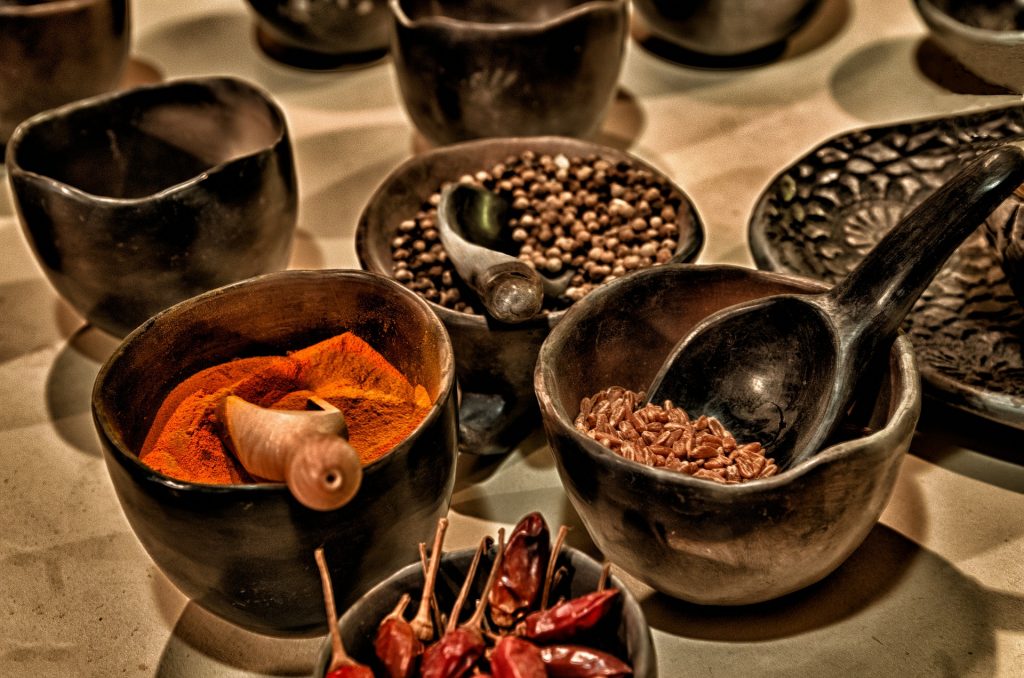 It is interesting that traditional diets around the World, spatially and temporally, vary considerably. However, analysis of these diets shows that they provide health to their populations despite being very different nutritionally. A closer look at the contents of these diets show some to be high in carbohydrates while others are high in protein and fat. The traditional diets eaten by populations living in Asia and South America are relatively high in rice and corn (maize), respectively. While the traditional diet consumed by Eskimos is high in protein and fat from marine origin, the traditional diet consumed by the Maasai of Kenya is high in protein and fat of ruminant origin. The traditional Mediterranean diet is more of a balance and can be considered closer to an isocaloric diet. Despite these differences traditional populations consuming these diets are healthy and there is little evidence that they develop modern Western lifestyle diseases such as cardiovascular disease and cancer, when consuming traditional foods.
It is interesting that traditional diets around the World, spatially and temporally, vary considerably. However, analysis of these diets shows that they provide health to their populations despite being very different nutritionally. A closer look at the contents of these diets show some to be high in carbohydrates while others are high in protein and fat. The traditional diets eaten by populations living in Asia and South America are relatively high in rice and corn (maize), respectively. While the traditional diet consumed by Eskimos is high in protein and fat from marine origin, the traditional diet consumed by the Maasai of Kenya is high in protein and fat of ruminant origin. The traditional Mediterranean diet is more of a balance and can be considered closer to an isocaloric diet. Despite these differences traditional populations consuming these diets are healthy and there is little evidence that they develop modern Western lifestyle diseases such as cardiovascular disease and cancer, when consuming traditional foods.
However, introduction of Western foods to these populations causes the development of Western lifestyle disease. Generally, adoption of a typical Western diet is counterproductive to health, because it is a pro-inflammatory diet, and this inflammation increases oxidative stress. In turn this oxidative stress leads to Western diseases such as cardiovascular disease, cancer, type 2 diabetes and obesity. Studies have investigated the effects of consuming varying degrees of Western food on ethnic populations. For example, in one study, researchers assessed the diets of ethnic Mexicans living in the United States. Those individuals who consumed a diet that most closely reflected the traditional Mexican diet (tortillas, beans, soups, Mexican mixed dishes (e.g., tamales), fruits, vegetables, full-fat milk, and Mexican cheeses and low in refined grains and added sugars) had 23 and 15 % lower serum C-reactive protein (a marker of inflammation) and insulin, respectively, compared to those who consumed a non-traditional diet.

Traditional diets are protective of Western lifestyle diseases. This is likely because although they differ in composition, they are devoid of the sugar and refined starch that are a cause of tissue inflammation and oxidative stress. Oxidative stress is now implicated as a causative factor in many Western lifestyle diseases.
Therefore these findings suggest that adherence to traditional Mexican food is associated with a reduction inflammation and insulin levels. Further, amongst obese women, adherence to the traditional Mexican diet was associated with a lower degree of insulin resistance and a lower plasma insulin concentration. A traditional Mexican diet is therefore associated with improvements to the insulin system. This is supported by evidence that shows that oxidative stress, resulting from inflammation, is a primary driver of insulin resistance. Many studies have highlighted the benefits of antioxidants at improving insulin resistance, and this likely stems from the ability of antioxidants to reduce the oxidative stress that drives the development of insulin resistance. One common feature of traditional diets is that they provide anti-inflammatory compounds, including antioxidants, essential fats and non-essential components such as conjugated linoleic acid, that may decrease such oxidative stress.
Eat Well, Stay Healthy, Protect Yourself
RdB
